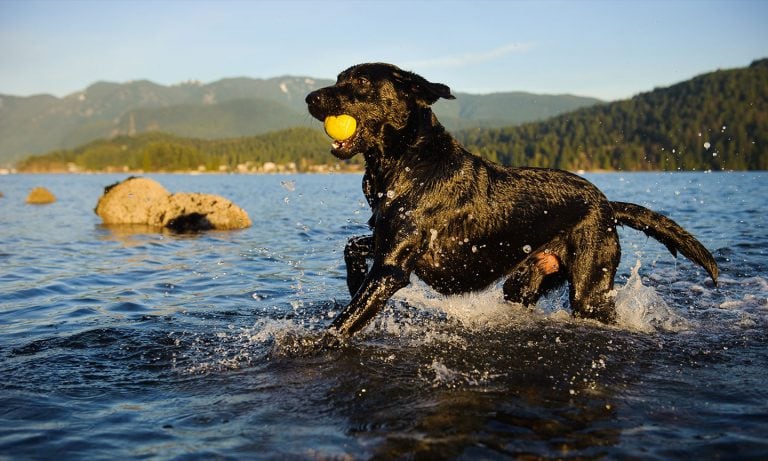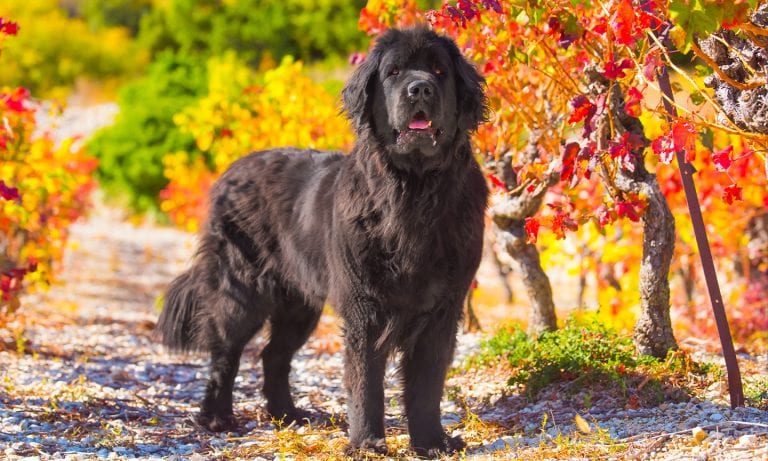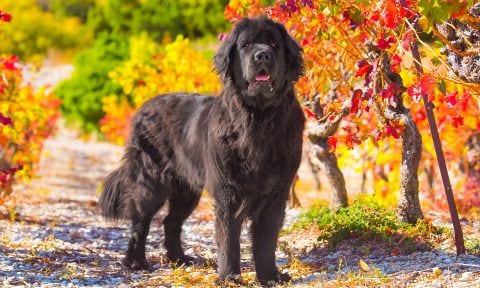Labrador Retriever vs Newfoundland

Breed Snapshot
Best For
The Labrador Retriever is one of the most popular dog breeds in America, known for their friendliness, intelligence and outgoing nature. These high-energy, athletic dogs require ample exercise and thrive in active households.
Labrador Retriever Temperament
Cheerful and animated, this large dog breed has stamina and energy to spare, able to keep up with your family and all your activities. You’ll want to funnel that energy into positive outlets, like outdoor activities and training. And thanks to their high intelligence, learning commands and tricks com...
Cheerful and animated, this large dog breed has stamina and energy to spare, able to keep up with your family and all your activities. You’ll want to funnel that energy into positive outlets, like outdoor activities and training. And thanks to their high intelligence, learning commands and tricks come relativity easy for them. Labrador dogs love having a job to do and excel at things like agility courses and, just like their name implies, retrieving items. In fact, their superior intelligence is why they often make great assistance dogs, working as therapy or service animals.
A people-pleaser, Labrador Retrievers have a pleasant personality and love interacting with humans. Get ready to be showered with lots of affection! They also easily make friends with dogs and other animals, including cats, although not all cats are as excited to meet them as they are—a Lab’s large size and high energy level can be a bit intimidating. Slow and controlled introductions to other family pets will help make the transition go smoothly. Considering the staying power of the Labrador dog breed’s popularity, it’s a safe bet your Lab will fit right in with the all the loved ones you choose to introduce into their life.
While they’re generally good-natured, like any dog breed, Labs may develop aggressive tendencies if they don’t receive proper training or have experienced abuse. Addressing any biting issues early on, providing proper socialization when they are puppies (aka safely exposing them to lots of new people, places and things) and working with a professional dog trainer can help avoid behavioral issues when they get older.
Labrador Retriever Traits

Breed Snapshot
Best For
Newfoundlands, known for their gentle giant demeanor, need regular exercise and grooming. They thrive in families with space and love water activities.
Newfoundland Temperament
Newfoundlands are known for having a patient and gentle personality. They love being around their people and are naturally friendly with strangers. Just like any other breed, they need early socialization (aka exposure to new people, places and things) to understand how to play appropriately with other dogs; sometimes the goofy Newfie doesn’t realize...
Newfoundlands are known for having a patient and gentle personality. They love being around their people and are naturally friendly with strangers. Just like any other breed, they need early socialization (aka exposure to new people, places and things) to understand how to play appropriately with other dogs; sometimes the goofy Newfie doesn’t realize how big they are! But consistent training will help your Newfoundland puppy grow up to be a confident, well-mannered dog.
The sweet-tempered Newfoundland makes a great family dog, as they typically get along well with kids of all ages, including babies and toddlers. While it may be cute, make sure your child doesn’t sit or ride on your Newfie. The dog may tolerate it, but as they get older, health problems like hip dysplasia can make them uncomfortable. This breed isn’t known for having aggressive tendencies, so pain is about the only reason a Newfoundland would growl or bite (outside of typical puppy behavior).
While the Newfoundland breed is often treated as family (especially in the United States), they are still used as working dogs in their home provinces of Newfoundland and Labrador, Canada. Originally bred for their skill at water rescues and to haul in fishing nets, today, the dogs are used for pulling carts or as pack horses. (And you may find they enjoy participating in “working” dog sports like carting and drafting competitions.)




